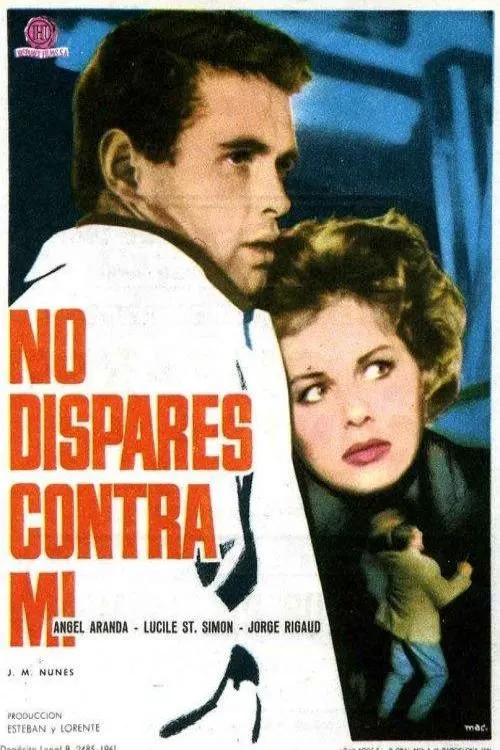No dispares contra mí

Plot
David, a young and charismatic law student in Spain, finds himself entangled in a web of small-time crimes, taking on a life of its own. His seemingly ordinary existence soon becomes a complex and thrilling ride, filled with unexpected twists and turns. It begins with a series of mundane tasks - petty thefts and small-time hustles, all of which seem to add up to a life of small-time delinquency. Yet, despite the seemingly innocuous nature of his actions, David finds himself drawn into a world of danger and intrigue, where the stakes are higher than he could ever have imagined. One fateful evening, David stumbles upon a most unfortunate discovery. While on the run with a friend's husband, who's not what he seems, in the trunk of the car, he finds himself confronted with the harsh reality of violence and death. As the husband, whose gruesome fate is a stark reminder of the world he's now entangled in, dies at his hands, David's world begins to shatter. The once seemingly safe space he inhabited suddenly turns dark, and his carefree days are now over. His friend Lucile, to whom he's grown close, finds herself caught in the whirlwind of David's life when she discovers the body of her husband. Initially overwhelmed by the shock and reality of it all, David's friend Lucile chooses to stick with him as he flees to France with their friend's body, a decision that sets them on a perilous journey. The once straightforward paths, they choose to tread now turn uncertain - for both Lucile and David - their lives forever intertwined in the aftermath of a tragic encounter. Their arrival in the charming landscapes of France, with its seemingly picturesque countryside, turns out to be a far cry from reality. For, amidst the stunning beauty, they're caught in the complexities of France's post-war world where the remnants of war still linger, amidst the backdrop of economic instability and social upheaval. The world they encounter is vastly different from the one back home - it's a world of stark contrasts where the rich coexist with the poor, and where violence lurks in every corner. The once clear lines between right and wrong begin to blur, as the realities of the world hit home. David and Lucile find themselves caught in the web of petty crooks, and with every passing day, the stakes rise, leaving them with fewer choices. Set in the backdrop of post-war France, the New Wave Movement influences the film profoundly, providing it with a distinct flavor of rebellion against the staid and stifling nature of traditional filmmaking. Jean-Pierre Melville, in this, his directorial debut, brings to the screen a world where nothing is as it seems. With his characteristic use of long takes, location shooting, and a focus on the everyday, Melville breathes life into the characters and their world. The use of black-and-white cinematography, reminiscent of the French New Wave, lends a gritty and stark reality to the film. It's a visual representation of the world David and Lucile inhabit, a world where nothing is as beautiful as it seems, where the stark contrasts of life and death, right and wrong, are brought to the forefront. In this way, the film becomes a reflection of the post-war realities, where social disorder, crime, and chaos had seeped into the very fabric of French society. The world Melville creates is one of stark contrasts, a world where violence lurks around every corner, and the once clear distinctions between right and wrong are slowly erased. The performance of the lead actors - Jean-Marc Michelangeli as David, and Pascale Audret as Lucile, brings depth and complexity to the characters. They navigate the complex web of relationships and moral dilemmas with a level of nuance and subtlety that's characteristic of Melville's style. Through the characters, Melville explores themes of morality, right, and wrong. He pushes the characters to the edge, forcing them to confront the harsh realities of the world. With each passing moment, the stakes rise, and the choices become fewer. It's in these moments that Melville's brilliance shines through. He masterfully weaves together a narrative that keeps the viewer engaged, invested in the characters' fate, and questioning the very fabric of the world they inhabit. The world of the film becomes an extension of the New Wave Movement's ideals - a rejection of traditional norms and values, an exploration of the everyday, and a focus on the human condition. It's in this context that "No Dispares Contra Mi" becomes more than just a film - it becomes a reflection of the era it's set in.
Reviews
Recommendations


